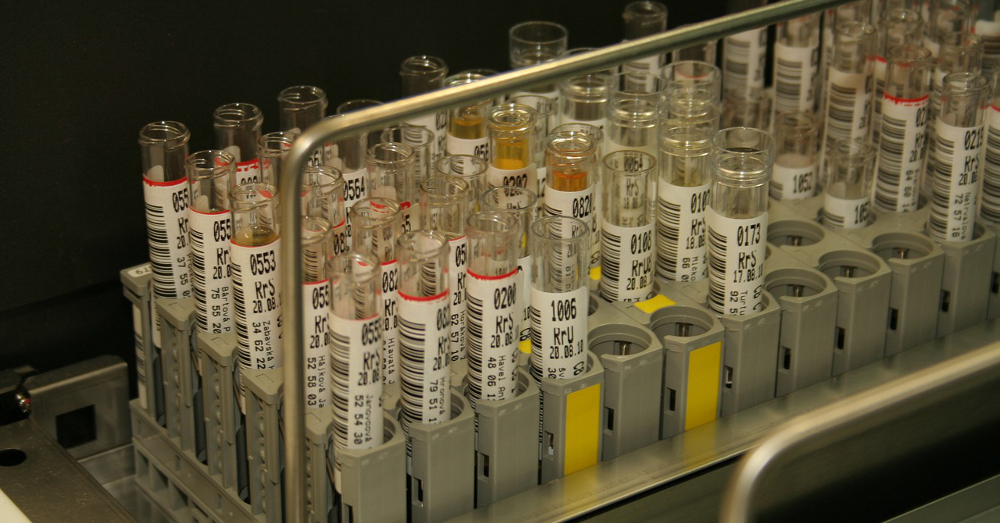
Urine Test Can Determine Your Level of Health
How healthy is your diet? Well, now there's a test for that, or there will be within two years, according to a study published in the Lancet Diabetes and Endocrinology. It's a urine test developed in collaboration by Aberystwyth University in Wales, Newcastle University in the U.K. and Imperial College London.
January 28, 2017 | Source: Mercola.com | by Dr. Joseph Mercola
How healthy is your diet? Have you ever wondered if recording what you eat on a day-to-day basis might be helpful in determining how your eating habits might be affecting your health, and maybe even your long-term well-being?
Well, now there's a test for that, or there will be within two years, according to a study published in the Lancet Diabetes and Endocrinology.1 It's a urine test developed in collaboration by Aberystwyth University in Wales, Newcastle University in the U.K. and Imperial College London.
Scientists say the test could be used to "unlock the biological markers" to help improve your nutritional profile, using proton nuclear magnetic resonance spectroscopy to analyze urine samples and detect the structure of the chemicals produced in your body as it processes food. Medscape says:
"The analysis can reveal whether we have eaten red meat or fish and indicate whether we are eating fruit and vegetables.
The test is sensitive enough to indicate some specific foods such as oranges, grapes and leafy green vegetables. It can also tell how much fat, sugar, fiber and protein a person has eaten."2
Interestingly, test results may be able to help people who are at risk of such diseases as type 2 diabetes, as well as those who struggle with obesity. The test is quick and convenient, lasting about five minutes.
One of the most important things this test does is circumvent the biggest hurdle in many nutrition and diet studies — that being the inability to correctly measure what people really eat — because about 60 percent of them misreport.3
How Healthy Is Your Diet?
In trials, the scientists were able to tell which diets were healthy and which weren't after 19 volunteers spent days eating a carefully controlled set of meals, a BBC article related. Four different diets, each with "varying degrees of healthiness," were administered to the subjects, whose urine was sampled morning, noon and night.
Meals in the "very unhealthy" category included things like sugary cereal for breakfast and fried sausages and waffles for lunch. People in the healthy group munched on things like boiled eggs, steamed salmon and grilled chicken with vegetables for dinner. According to Live Science:
"Each person in the study followed each of these four diets: They stayed at a lab, on four separate occasions, for three days at a time, and during each stay, the researchers collected the peoples' urine samples in the morning, afternoon and evening."4
Researchers involved in the study believe analyzing urine samples would be a more accurate way to determine if someone is following a healthy diet — better than a food diary ever could.
One reason is because food diaries are often either incomplete or grossly under-reported, said scientist and professor at Imperial, Gary Frost, Ph.D., who added:
"The bigger you are the more likely you are to under-report what you eat. People find it difficult to open up to what types of foods they eat at home, which is a major problem.
If someone is very big and their profile says they're eating lots of energy-dense foods like meat, then you can try to change that profile and then test them again later. It remains to be seen, but people might respond better to that and there is a desperate need for tools to help people change their diet."5
Analyzing the compounds in urine samples produced when the body breaks down food is done to help researchers "determine if a person has recently eaten a certain type of food, such as red meat, chicken, fish or fruits or vegetables."
Tests Can Help Individuals or Large Groups of People 'in the Real World'
Scientists' next steps will likely be targeted toward "refining the technology" by testing it on groups and communities, but in the real world rather than in a clinical lab. Additionally, they hope the test can be used to help people on weight loss programs, and even rehabilitate patients trying to get healthy after suffering a heart attack.
Frost says testing large numbers of people would create a profile of what someone — or an entire country — is eating. In the U.K., the hope is that the information they glean will help health authorities develop better public-health campaigns. Dr. Isabel Garcia-Perez, another researcher from Imperial, explained:
"This will eventually provide a tool for personalized dietary monitoring to help maintain a healthy lifestyle. We're not at the stage yet where the test can tell us a person ate 15 chips yesterday and two sausages, but it's on the way."6
Professor John Mathers, Ph.D., one of the study scientists from Newcastle University, said their research marked the first opportunity to gain an objective assessment of people's overall health "without all the hassles, biases and errors of recording what they've eaten." Dr. Des Walsh, from the UK Medical Research Council, explained:
"Though this research is still in its early stages, it's grappling with essential methods in food and diet studies where advances are really needed.
Measuring what we eat and drink more accurately will widen the benefits of nutrition research, developing better evidence-based interventions to improve an individual's health and reduce obesity."7
